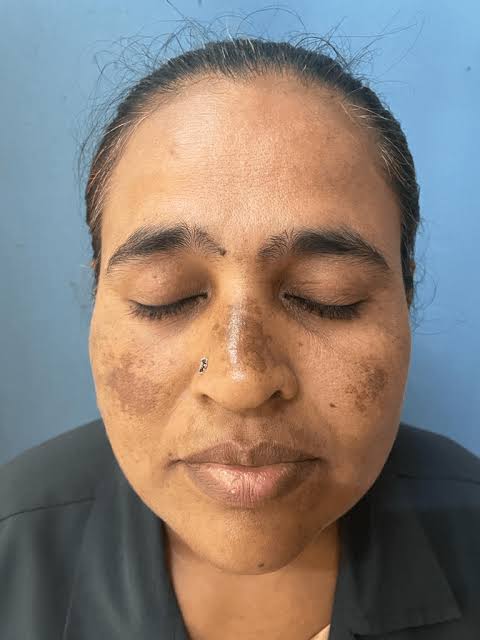
Melasma is a skin condition characterized by brown or blue-gray patches or freckle-like spots. It’s often called the “mask of pregnancy.” Melasma happens because of overproduction of the cells that make the color of your skin. It is common, harmless and some treatments may help. Melasma usually fades after a few months.
WHAT IS MELASMA AND WHAT DOES IT LOOK LIKE?
Melasma is a common skin disorder. Loosely translated, the word means “black spot.” If you have melasma you’re probably experiencing light brown, dark brown and/or blue-gray patches on your skin. They can appear as flat patches or freckle-like spots. Commonly affected areas include your face, including the cheeks, upper lip and forehead, as well as the forearms. Melasma is sometimes called the “mask of pregnancy” because it frequently affects pregnant women. Melasma typically darkens and lightens over time, often getting worse in the summer and better in the winter.
Another, less common name for melasma, is chloasma. Although this disorder is completely harmless, it understandably makes some people feel self-conscious